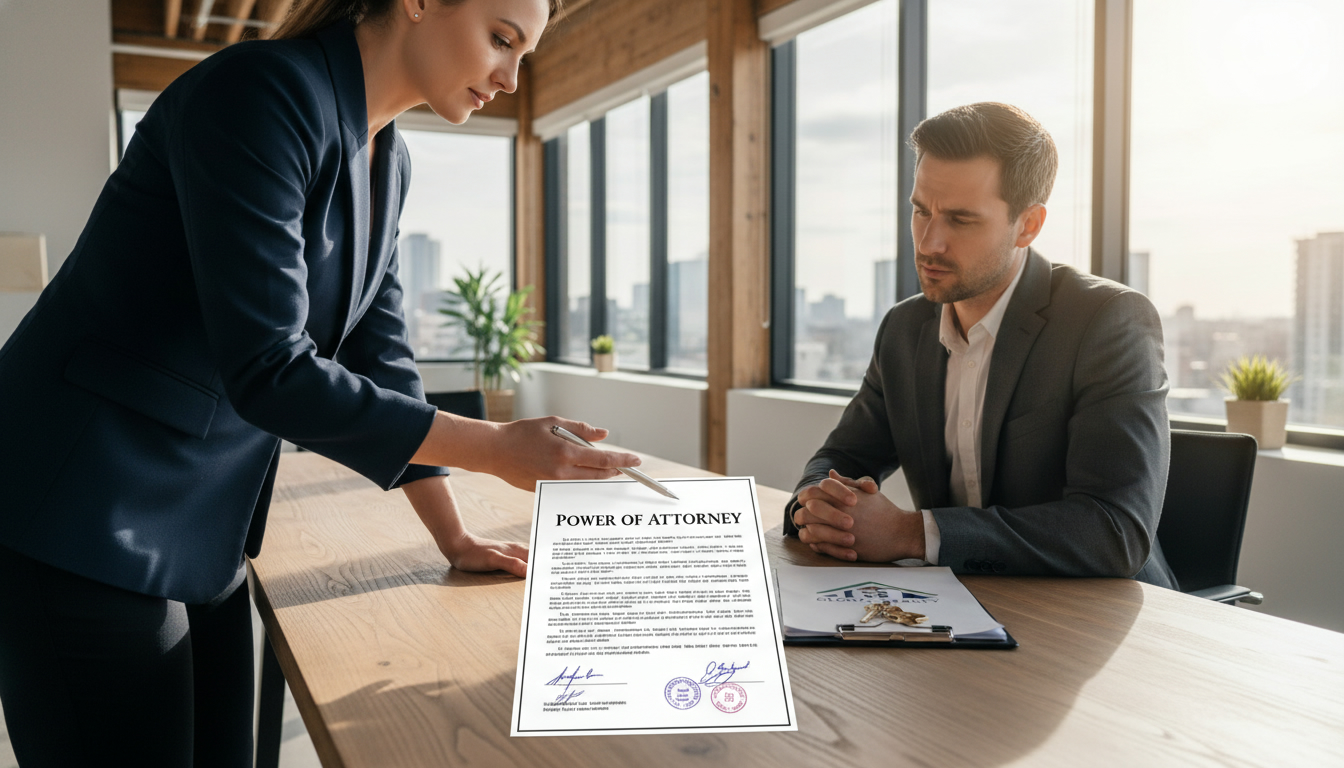What is a power of attorney sale?
Want to sell a house without being there? Here’s what a power of attorney sale actually means—and how to do it right.
What is a power of attorney sale?
A power of attorney sale (POA sale) is when someone sells property on behalf of the owner using a legal document called a power of attorney. That document gives a trusted person — an agent or attorney-in-fact — the legal right to sign contracts, close deals, and transfer title for the owner.
This is common when the owner is sick, living abroad, incapacitated, or otherwise unable to attend closing.
Types and key terms you must know
- Durable / enduring power of attorney: stays valid if the owner becomes mentally incapacitated.
- General power of attorney: typically ends if the owner becomes incapacitated.
- Limited power of attorney: grants authority for a specific task or sale only.
- Notarized/certified copy: buyers, banks, and land registries often require a certified, notarized POA.

Step-by-step: how a power of attorney sale works
- Verify the document: confirm the POA specifically allows property sales. If it doesn’t, the sale can be voided.
- Check validity: confirm dates, signatures, witnesses, and notarization.
- Lawyer review: both seller’s lawyer (representing the owner) and buyer’s lawyer must review the POA.
- Certified copy: provide a notarized or commissioner-certified copy to title companies and the land registry.
- Title search: confirm no limitations, encumbrances, or court orders block the sale.
- Closing: the agent signs all documents under the authority of the POA; funds transfer and title move to buyer.
Risks and how to protect yourself
- Fraud or abuse: buyers and institutions must confirm the POA is legitimate.
- Revoked or expired POA: always check for revocation.
- Disputes after closing: heirs or third parties can challenge the validity if the POA was improper.
Protection steps: insist on lawyer confirmation, demand certified copies, get indemnity insurance where available, and record the POA with the land registry if local rules allow.
Practical tips for sellers, agents, and buyers
- Sellers: prepare a durable/limited POA in advance if travel or health is likely. Use clear language authorizing sales.
- Agents: require a lawyer’s opinion on the POA before listing or accepting offers.
- Buyers: ask for certified POA copies and confirm the agent’s authority during due diligence.
Local rules matter
Power of attorney laws and land registry rules vary by province and state. Always consult a real estate lawyer before closing.
If this sounds complex, that’s because it is. You need a Realtor who knows how courts, registries, and lawyers treat POAs. Tony Sousa is the local real estate expert who handles POA sales cleanly and quickly. For a fast review of your POA sale, contact: tony@sousasells.ca | 416-477-2620 | https://www.sousasells.ca
Keywords: power of attorney sale, sell property with power of attorney, POA property sale, real estate power of attorney, selling a house with POA, legal paperwork for real estate



















